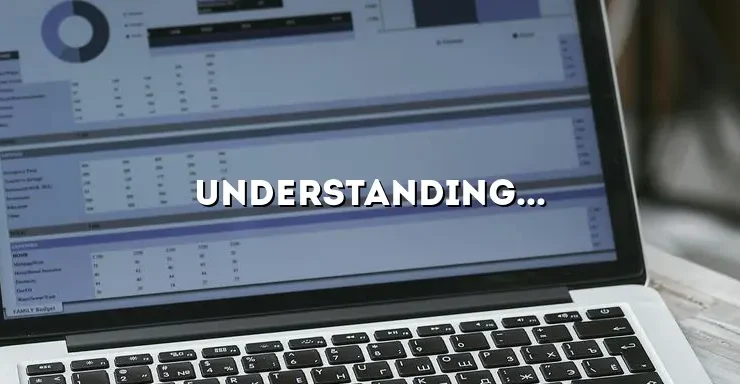
Insurance compliance is crucial in the insurance industry to ensure that companies adhere to the regulations and guidelines set by governing bodies. With the increasing complexity of regulations, it has become a challenging task for insurance companies to keep up with the ever-evolving compliance landscape. This is where insurance compliance software comes into play.
In this article, we will delve into the world of insurance compliance software, exploring its features, benefits, and how it helps insurance companies streamline their compliance processes. From automating compliance tasks to ensuring data accuracy and providing real-time insights, insurance compliance software has revolutionized the way insurance companies maintain regulatory adherence.
Streamlining Compliance Processes
Insurance compliance software streamlines and automates various compliance processes, reducing the manual effort and saving time for insurance companies. It provides a centralized platform where companies can manage and track all their compliance-related activities. By automating tasks such as policy management, reporting, and audits, insurance compliance software eliminates the need for repetitive manual work and allows employees to focus on more strategic activities.
Policy Management
Insurance compliance software simplifies policy management by providing a centralized repository for all policies, ensuring easy access and version control. It allows companies to create, update, and track policies, ensuring that they are in line with the latest regulatory requirements. The software also ensures that employees are aware of policy changes and updates through automated notifications.
Reporting and Audits
Generating accurate and timely reports is a critical aspect of insurance compliance. Insurance compliance software automates the reporting process, pulling data from various sources and generating comprehensive reports that meet regulatory requirements. It also facilitates audits by providing auditors with real-time access to compliance-related information, ensuring transparency and efficiency during the audit process.
Ensuring Regulatory Adherence
Staying compliant with ever-changing regulations is a daunting task for insurance companies. Insurance compliance software helps companies stay up-to-date with regulatory changes by providing automated updates and alerts. It monitors regulatory bodies’ websites, news feeds, and other relevant sources, ensuring that companies are aware of any changes that may impact their compliance status.
Automated Regulatory Updates
Insurance compliance software automatically scans regulatory websites and news feeds for updates and regulatory changes. It filters and categorizes the information, providing companies with only the relevant updates. This eliminates the need for manual monitoring and ensures that companies are aware of changes that may affect their compliance obligations.
Alerts and Notifications
Insurance compliance software sends automated alerts and notifications to relevant stakeholders whenever there are regulatory changes or updates. This ensures that companies can take immediate action to ensure compliance. The software allows companies to customize the alerts based on their specific requirements, ensuring that they receive only the information that is relevant to their business.
Centralizing Compliance Data
Insurance compliance software centralizes all compliance-related data, making it easily accessible and facilitating efficient monitoring and reporting. It acts as a centralized repository where companies can store, organize, and manage all their compliance-related information.
Data Storage and Organization
Insurance compliance software provides a secure and organized environment for storing compliance-related data. It allows companies to categorize data based on different compliance requirements, ensuring easy retrieval and access. The software also enables companies to set access controls, ensuring that only authorized personnel can access sensitive compliance data.
Efficient Monitoring and Reporting
With all compliance data centralized in one platform, insurance compliance software enables efficient monitoring and reporting. It allows companies to track compliance activities in real-time, generating comprehensive reports that provide insights into compliance performance. This helps companies identify areas that need improvement and take proactive measures to address any compliance gaps.
Enhancing Data Accuracy
Data accuracy is crucial in insurance compliance. Manual data entry and processing can lead to errors and inconsistencies, potentially resulting in compliance breaches. Insurance compliance software automates data validation processes, minimizing manual errors, and ensuring data accuracy.
Automated Data Validation
Insurance compliance software automates data validation processes, ensuring that the data entered into the system is accurate and meets the required standards. It performs various checks, such as validating data formats, cross-referencing data with regulatory requirements, and flagging any inconsistencies or errors. This helps companies maintain high data accuracy levels and reduces the risk of compliance breaches.
Real-Time Data Updates
Insurance compliance software provides real-time data updates, ensuring that companies have access to the most up-to-date information. It automatically syncs with relevant databases and regulatory sources, ensuring that the data used for compliance purposes is always current. This eliminates the need for manual data updates and reduces the risk of using outdated information for compliance activities.
Real-Time Compliance Insights
Insurance compliance software provides real-time insights and analytics, enabling insurance companies to proactively identify compliance issues and take necessary actions. It offers comprehensive dashboards and reports that provide a holistic view of compliance performance, helping companies make informed decisions.
Compliance Dashboards
Insurance compliance software provides interactive dashboards that give companies a real-time overview of their compliance status. These dashboards display key compliance metrics, such as the number of policy violations, pending audits, and compliance training completion rates. Companies can customize the dashboards based on their specific requirements, ensuring that they have visibility into the metrics that matter most to them.
Trend Analysis and Predictive Insights
Insurance compliance software uses advanced analytics techniques to identify compliance trends and patterns. It analyzes historical data to identify potential compliance risks and provides predictive insights, helping companies mitigate risks before they escalate. These predictive insights enable companies to take proactive measures, ensuring continuous compliance.
Integrating with Existing Systems
Insurance compliance software seamlessly integrates with existing systems, such as policy management or claims processing platforms. This integration enhances overall operational efficiency by eliminating manual data entry and ensuring data consistency across different systems.
Policy Management Integration
Insurance compliance software integrates with policy management systems, ensuring that compliance requirements are embedded within the policy lifecycle. This integration automates compliance checks during policy creation and updates, minimizing the risk of non-compliant policies. It also allows for seamless communication between policy management and compliance teams, ensuring that any policy changes are reflected in the compliance system.
Claims Processing Integration
Insurance compliance software integrates with claims processing systems, ensuring that compliance requirements are considered during the claims handling process. This integration automates compliance checks for claims, ensuring that they meet all regulatory requirements. It also facilitates the exchange of information between claims processing and compliance teams, streamlining the claims settlement process and reducing the risk of compliance breaches.
Future Trends and Innovations
The field of insurance compliance software is constantly evolving, driven by advancements in technology. Here are some future trends and innovations that we can expect to see:
Artificial Intelligence (AI) in Compliance
Artificial intelligence (AI) has the potential to revolutionize insurance compliance. AI-powered compliance software can analyze vast amounts of data, identify complex compliance patterns, and provide real-time insights. It can also automate compliance tasks, such as data validation and risk assessment, saving time and resources for insurance companies.
Machine Learning for Risk Prediction
Machine learning algorithms can analyze historical compliance data to identify patterns and predict potential compliance risks. By continuously learning from new data, machine learning models can provide accurate risk predictions, enabling companies to take proactive measures to mitigate compliance risks.
Predictive Analytics for Regulatory Changes
Predictive analytics models can analyze regulatory trends and patterns to predict potential regulatory changes. This helps insurance companies stay ahead of the curve and take proactive actions to ensure compliance before new regulations are implemented.
Blockchain for Secure Compliance Data
Blockchain technology can provide a secure and transparent platform for storing compliance-related data. It ensures data integrity, immutability, and traceability, reducing the risk of data tampering and unauthorized access. Blockchain-based compliance software can enhance trust and transparency in compliance processes.
In conclusion, insurance compliance software plays a vital role in helping insurance companies navigate the complex regulatory landscape. By streamlining compliance processes, ensuring regulatory adherence, centralizing compliance data, enhancing data accuracy, providing real-time insights, and integrating with existing systems, insurance compliance software revolutionizes the way insurance companies achieve and maintain compliance. As technology continues to advance, we can expect even more innovative solutions in the future, further transforming the insurance compliance landscape.






